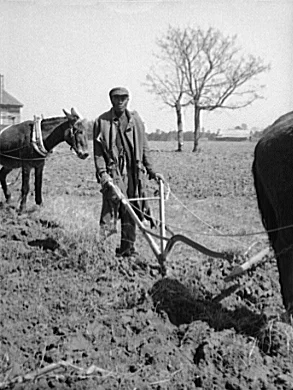The book on my nightstand right now is Willa Cather's My Antonia. I've come to Willa Cather way too late in life. Cather writes compelling novels, mostly about pioneers, that brim with insights about people doing hard things. In My Antonia, she describes the tribulations of the settlers of the vast Midwest prairies, focusing on an immigrant family from Bohemia and their daughter, Antonia.
I had occasion to mention the book recently when I was chatting with someone who has so far been unable to change the conversation in his organization. He described a group of people so set in their ways that their skin had the bluish tint of rigor mortis. Agendas of meetings are so tightly controlled that it's impossible to introduce new ideas. What could he do?
"Break the soil" I said, channeling my inner Willa Cather. In My Antonia, Cather describes the difficult process by which the farmers prepared their soil after the frigid winter. Before any seeds could be planted, the settlers trudged behind their oxen or horses to break and turn the cold soil. Unless this work was done, sowing seeds was pointless. Seeds don't grow in ill-prepared soil.
And that's what needs to be done in frozen organizations where change seems impossible. Unless the Rebel at Work steps back to "break the soil", his seed ideas are unlikely to take root. So what does breaking the soil look like in organizations and businesses? We'd love to hear your ideas but here are some of ours.
- Take advantage of any extracurricular activities, such as a "giving back to the community" days or the annual office picnic, to improve your relations with others, understand what makes them feel good, and perhaps gently encourage some reflection on how things are going.
- Share articles, videos, etc. that promote interesting ideas. Don't pick negative articles; don't editorialize! Just share! And try to find ideas that the organization can claim it is already implementing--whether it's true or not! The group's perception of itself is key. If people start thinking of themselves as modernizers, they're more likely to consider other "new" ideas.
- Engage in reciprocity. Do favors for others. Help someone advance an idea you're not that fond of in hopes they will do the same for you some day.
- And one of our favorite evergreen ideas: have lunch with a bureaucratic black belt in your organization. Ask them about what's most important to the group and why. Have them talk about previous successful initiatives and what has worked in the past. When planting your new seeds, it's best to start with those that will thrive in the current soil.

